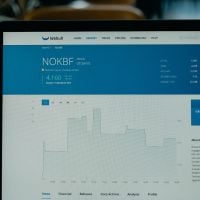Deadline: 2 June 2020
The European Union (EU) is seeking proposals to contribute the development and consolidation of democracy and the rule of law and respect for all human rights and fundamental freedoms by supporting Human Rights Defenders (HRDs) in their efforts to protect and promote human rights and fundamental freedoms.
The specific objectives of this call for proposals are:
- Supporting Civil Society Organisations that work for the protection and promotion of human rights including by supporting Human Rights Defenders.
- Supporting Human Rights Defenders in their efforts to promote and strive for the protection and realisation of human rights and fundamental freedoms.
Priority Areas
The non-exhaustive list of examples of priority areas are:
- The protection of human rights defenders;
- Enhancing technical knowledge and skills of human rights defenders;
- Strengthening capacities of human rights defenders for carrying out their activities, including but not limited to monitoring and documenting violations, seeking remedies for victims of human rights violations, fighting against impunity;
- Strengthening capacities of human rights defenders for expertise building for legal professionals and improving access to justice.
Funding Information
- The overall indicative amount made available under this call for proposals is EUR 4,000,000. The contracting authority reserves the right not to award all available funds.
- Any grant requested under this call for proposals must fall between the following minimum and maximum amounts:
- Minimum amount: EUR 3,500,000
- Maximum amount: EUR 4,000,000
Duration
The initial planned duration of an action may not be lower than 36 months nor exceed 42 months.
Location
Actions must take place in Turkey, except for specific activities, that may take place in a Member State of the European Union or beneficiary country of IPA II or of a Member State of the European Economic Area (EEA), related to study tours, participation in events and attendance of Human Rights Defenders to platforms, meetings and conferences, etc. as long as they clearly contribute to the achievement of the project’s overall objectives. Activities related to exchange of knowledge and experience from Member State of the European Union or beneficiary country of IPA II or of a Member State of the European Economic Area (EEA) can be supported only if part of a broader action.
Eligibility Criteria
Lead applicant(s)
- In order to be eligible for a grant, the lead applicant must:
- Be a legal person and
- Be non-profit-making and
- Be a civil society organisation and
- Be established in a Member State of the European Union or beneficiary country of IPA II or of a Member State of the European Economic Area (EEA) and
- Be directly responsible for the preparation and management of the action with the co-applicant(s) and affiliated entity(ies), not acting as an intermediary.
Co-applicant(s)
- Co-applicants participate in designing and implementing the action, and the costs they incur are eligible in the same way as those incurred by the lead applicant.
- Co-applicants must satisfy the eligibility criteria as applicable to the lead applicant himself.
Affiliated entities
- The lead applicant and its co-applicant(s) may act with affiliated entity(ies).
- Only the following entities may be considered as affiliated entities to the lead applicant and/or to co-applicant(s):
- Only entities having a structural link with the applicants (i.e. the lead applicant or a co-applicant), in particular a legal or capital link.
- This structural link encompasses mainly two notions:
- Control, as defined in Directive 2013/34/EU on the annual financial statements, consolidated financial statements and related reports of certain types of undertakings:
- Entities affiliated to an applicant may hence be:
- Entities directly or indirectly controlled by the applicant (daughter companies or first-tier subsidiaries). They may also be entities controlled by an entity controlled by the applicant (granddaughter companies or second-tier subsidiaries) and the same applies to further tiers of control;
- Entities directly or indirectly controlling the applicant (parent companies). Likewise, they may be entities controlling an entity controlling the applicant;
- Entities under the same direct or indirect control as the applicant (sister companies).
- Entities affiliated to an applicant may hence be:
- Control, as defined in Directive 2013/34/EU on the annual financial statements, consolidated financial statements and related reports of certain types of undertakings:
- Membership, i.e. the applicant is legally defined as a e.g. network, federation, association in which the proposed affiliated entities also participate or the applicant participates in the same entity (e.g. network, federation, association,…) as the proposed affiliated entities.
For more information, visit https://bit.ly/2POKlnR









































